For the purpose of assessing the ongoing impact of COVID-19 on IAMU member universities and their response to the crisis, the Secretariat conducted a follow-up survey. The survey was completed between 1st to 31st September 2021 via a web survey interface. Total 54 member universities from 32 countries took the survey, and the response rate was 80%.
The summary result in PDF format is available to download.

Country representation
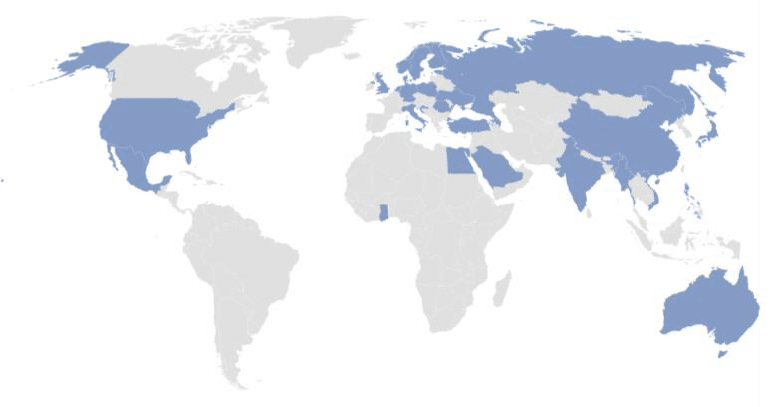
What is the current operational status of your university in relation to COVID-19?
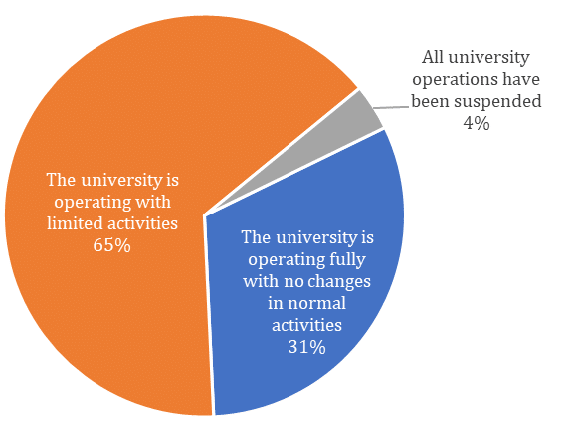
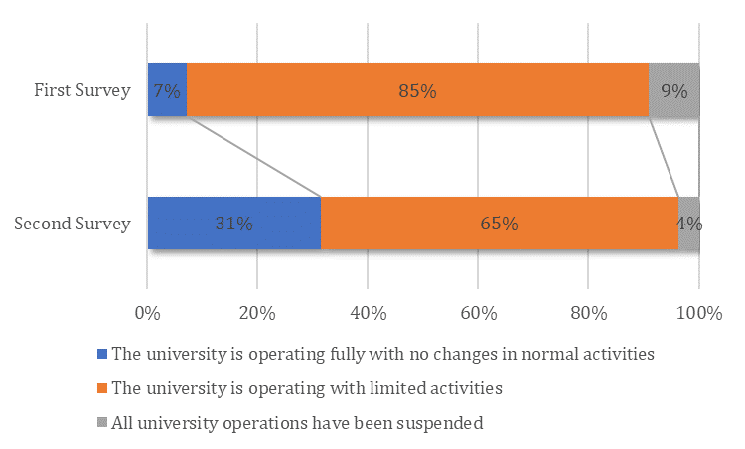
65% of member universities are operating with limited activities
What measures have been taken with respect to the operation of the university in response to COVID-19?
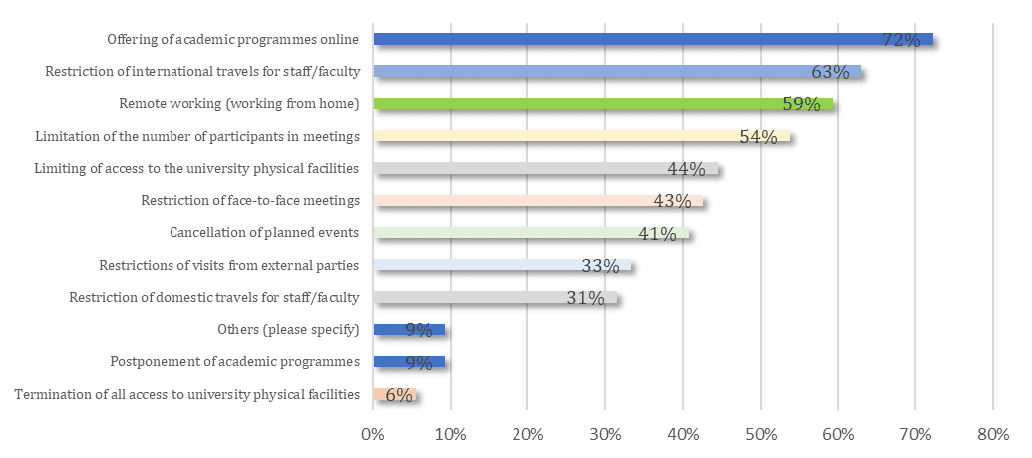
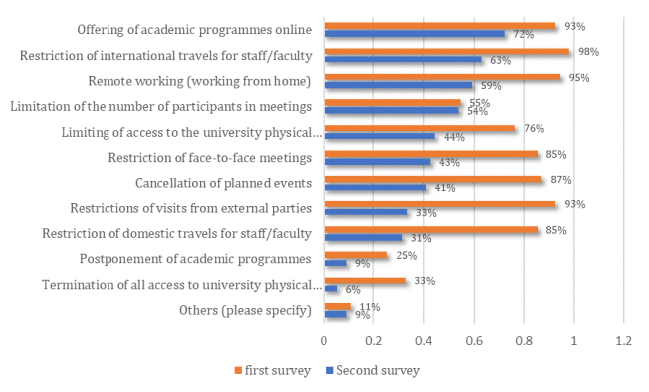
There has been a reduction of anti-COVID measures taken with respect to institutional operations
What measures have been taken with respect to the operation of the university in response to COVID-19?


There has been a reduction of anti-COVID measures taken with respect to institutional operations
What measures are currently being taken with regards to teaching and learning activities in response to COVID-19?
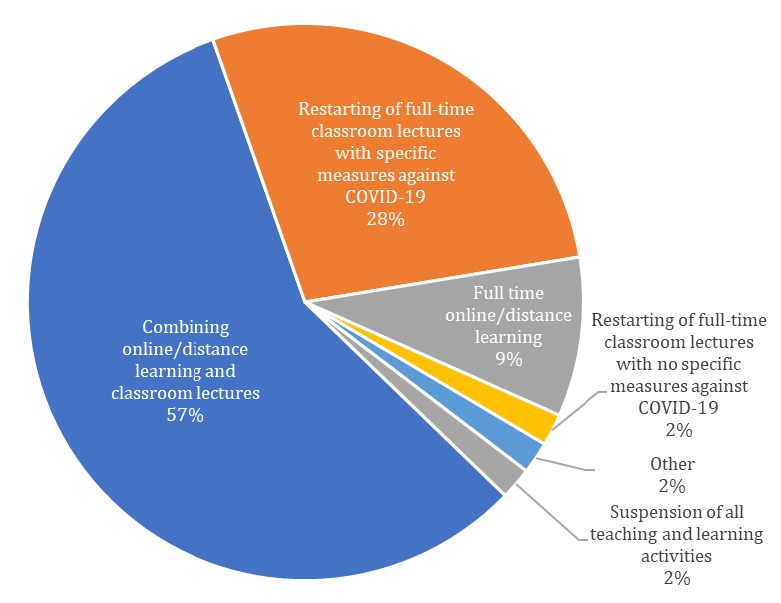
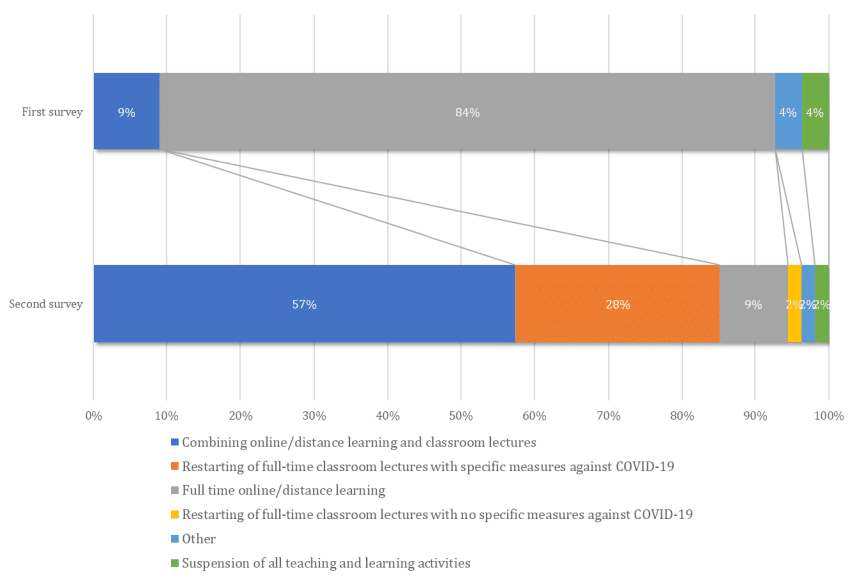
57% of member universities have shifted to combining online/distance learning and classroom lectures
Kindly indicate any difficulties the university has encountered with online/distance learning as a response to COVID-19.
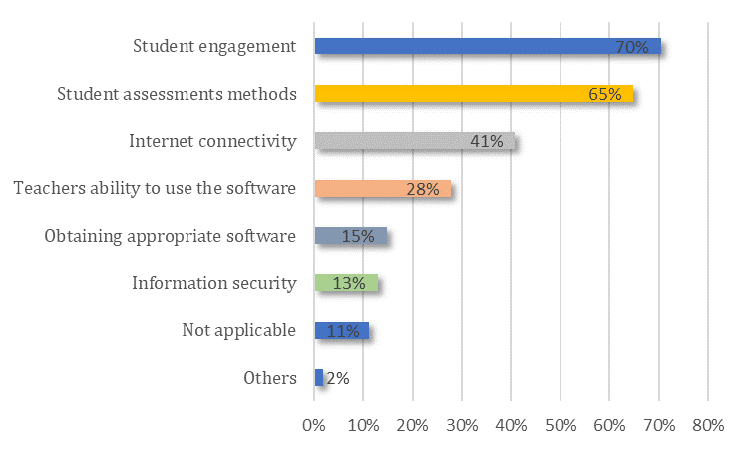
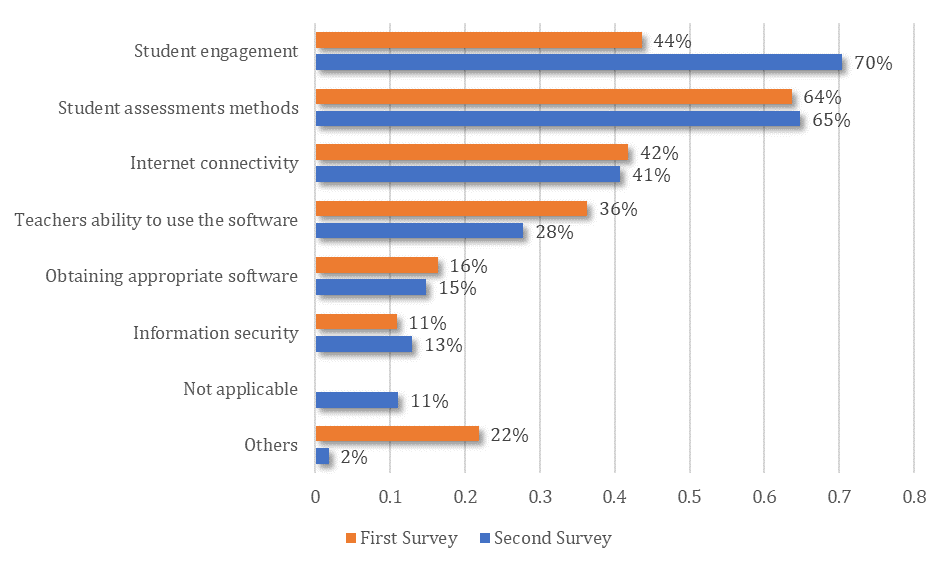
Concern about “student engagement” increased. “Assessment methods” is still at the same level
What measures are currently being taken regarding practical training sessions at your university?
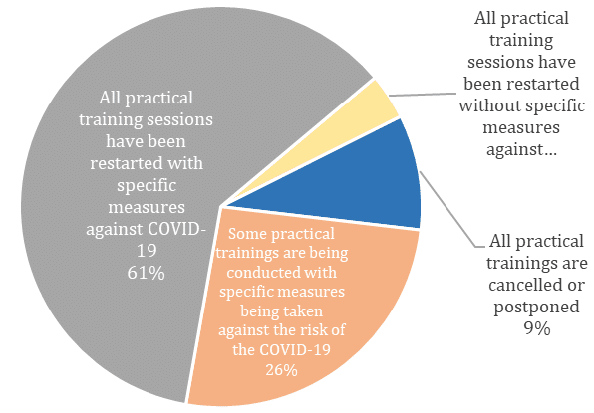
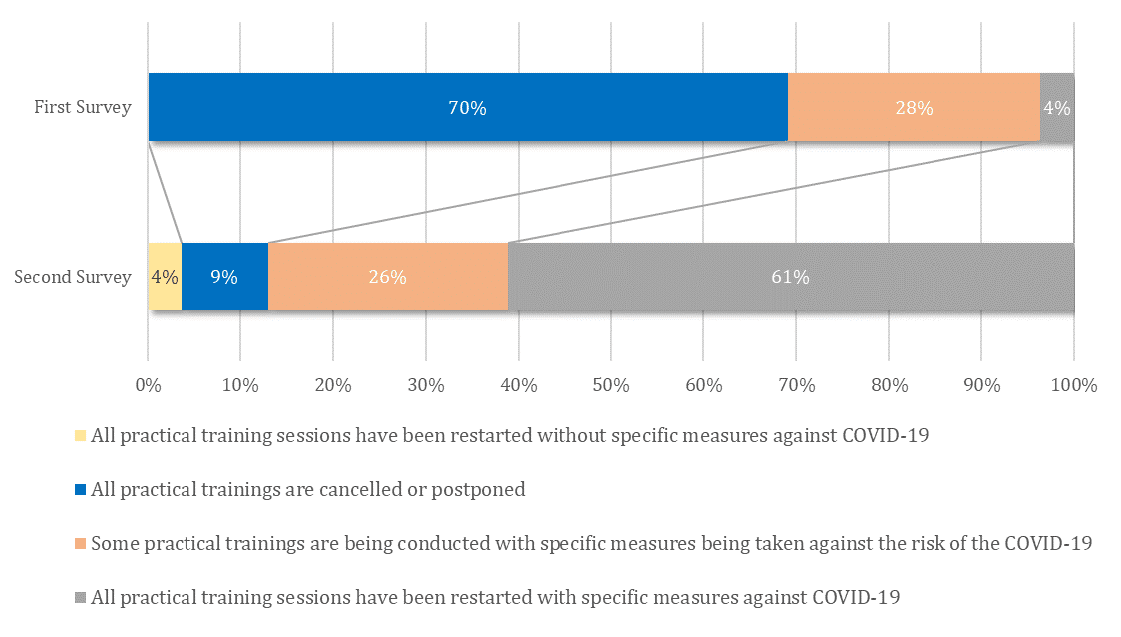
61% of member universities have restarted ALL practical training with specific measures against COVID-19
What specific difficulties are you encountering with on-board training programmes due to COVID-19?
Difficulties related to travel restrictions and availability of cadets’ berth account for 46% of responses
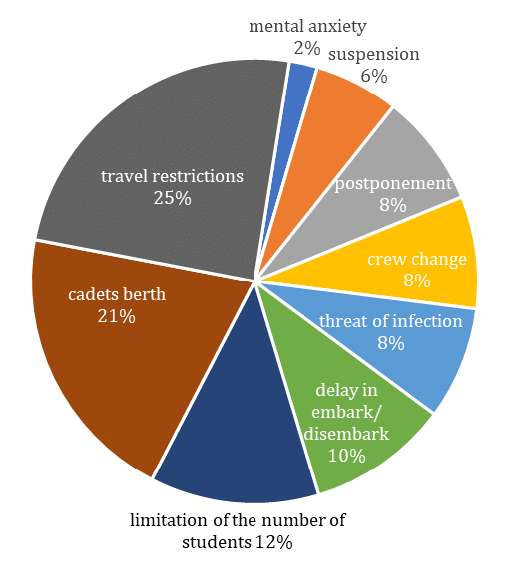
“National and State travel restrictions prohibiting movement of students to attend and an unwillingness of students to leave their home locality.”
“Sign-on and sign-off problems for cadets causing delays for training onboard due to the travel restrictions encountered in some countries”.
“Finding companies who accept taking our students on board, as a result of budget reduction. Only a limited number of students accepted by ship companies. In some cases, training programmes on board were postponement .”
“We have always been in close consultation with the shipowners’ association to guarantee continuation of the on- board training programmes. Only the cruise companies sold some of their ships so we have less capacity available. Replacement of 60 days of sea time by simulator time has helped us; gave more flexibility.”
To what extent has the on-board training capacity of the university pre-COVID-19 been currently achieved (percentage of students get on-board training opportunities now as compared to pre-COVID-19 capacity)?
Most of member universities are still not in 100% recovery.
But the situation seems getting better.
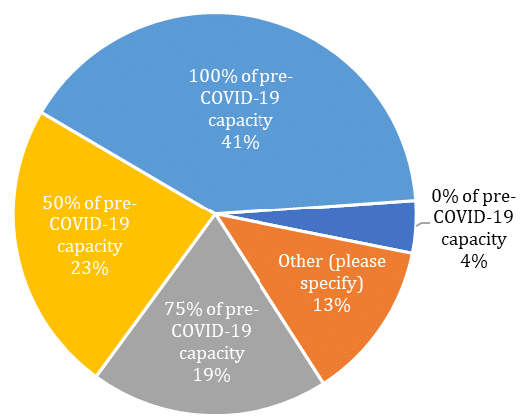
“Being archipelagic, we have travel or border restrictions owing to covid-control measures, document processing delays, quarantine periods. We try to assist students to anticipate meeting these challenges and also inform the shipping and manning companies of situations.”
“Everything has been managed in close cooperation with shipowners, to coordinate and harmonize training programmes and anti-covid measures.”
“Training at national centre is 50% capacity, with delays in getting all students trained. Training is still occurring but happening slower than normal. For on-campus training, we are at 100% capacity, but have resorted to one-day voyages to avoid students sleeping in close quarters on the training vessel.”
Are there any measures taken by the Maritime Administration of your country to mitigate the difficulties on proper implementation of on-board training after the pandemic of the COVID-19?
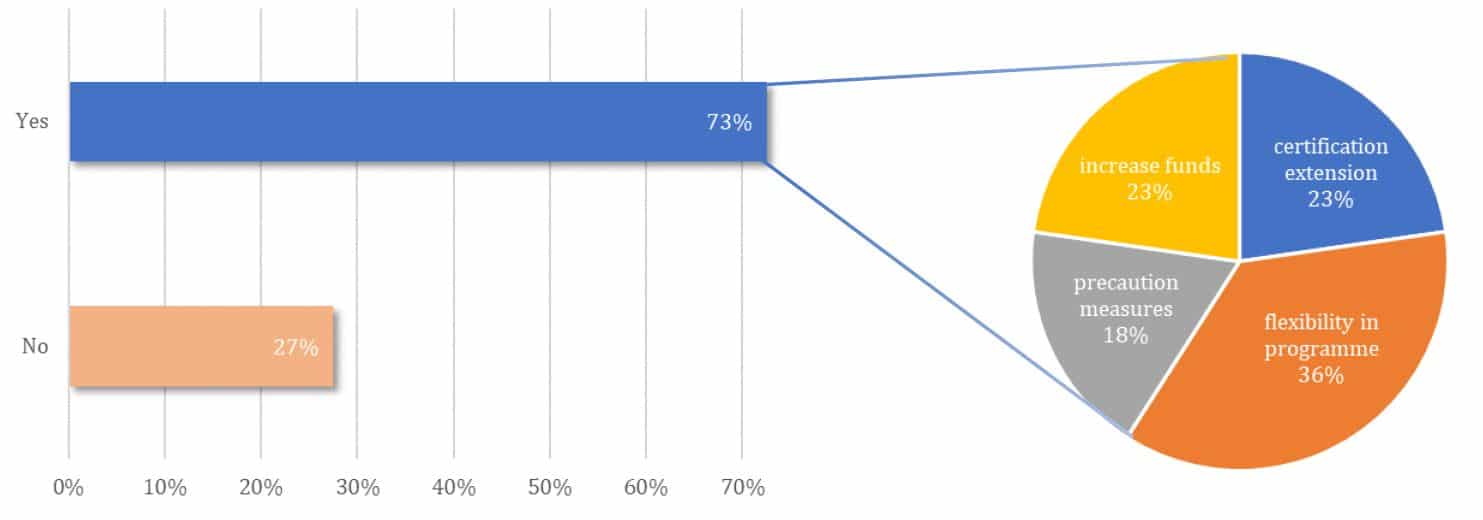
“Advising and promulgating policies to strengthen the prevention of the COVID-19 pandemic regarding maritime activities. Specifically, the policy for strict management of people entering / exiting the port and boarding / disembarking, all people must have negative COVID-19 test results, this will help reduce the risk of COVID-19 infection for all on-board people.”
“Yes, the Administration developed special guidelines against COVID19 for proper implementation of on-board training.”
“The Administration is identifying additional on-board training possibilities like attracting other vessels for cadet training. Administrations also started financial support – Cadet Grant Program to attract more companies for on-board training.”
What are the main concerns about the effects of the COVID-19 crisis on university operations at present?
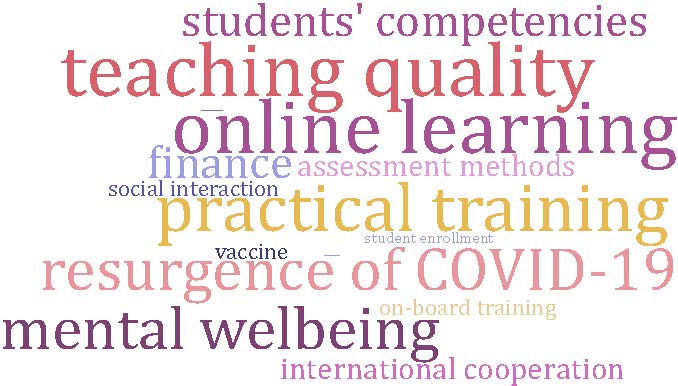
“Academic year extension will delay the students in getting their degrees and shipping companies are not able to visit the campuses and select students for placement. Online classes are conducted to teach theory parts only. Practical classes can be conducted only on campus which is not possible during the closure of the University and lock down period”.
What are the main concerns about the long-term effects of the COVID-19 crisis on university operations?
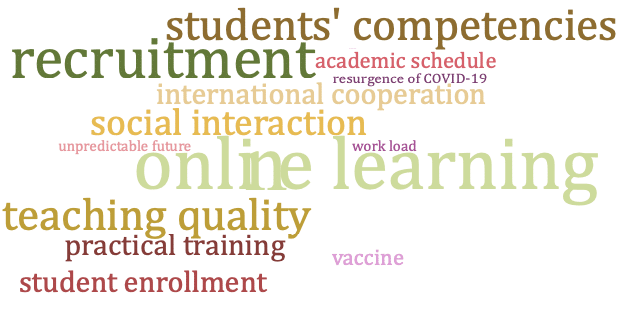
“A decline in the quality of education. Problems that may occur in the workplace due to the fact that the application of trainings are not at the desired level.”
“On-board training problems will lead to late career start for students. Quality of online Education and students’ motivation”
What is the best lesson learned for delivering academic programme while responding to the COVID-19?
“We need to offer more online academic programmes and learn how to better combine online teaching with classroom teaching. We need to improve remote working/studying mechanisms, enhance teachers’ ability to use the relevant software and encourage students’ engagement in online learning”.
“The University has to focus on the resilience of its faculty, staff, resources and systems and their ability to adapt with agility in the face of disruption of any kind (i.e., their ability to cope with a steep learning curve). The deeper lessons of organizational learning and resilience go beyond the reactive measures triggered by COVID-19 e.g., transitioning from face-to-face curriculum delivery to online delivery. The organization itself should focus on fundamental organizational characteristics that make it able to be proactive, cope and adapt in light of a disruption”.
“We should use all available information and online technologies, to make the educational process convenient and fruitful not only during pandemic, but in general, as it is very actual especially for maritime professionals”.
“Face to face teaching can produce better results than any online/remote education.”
“Recommendations of some International organizations such as ICS, INTERTANKO, BIMCO were also taken into account”
